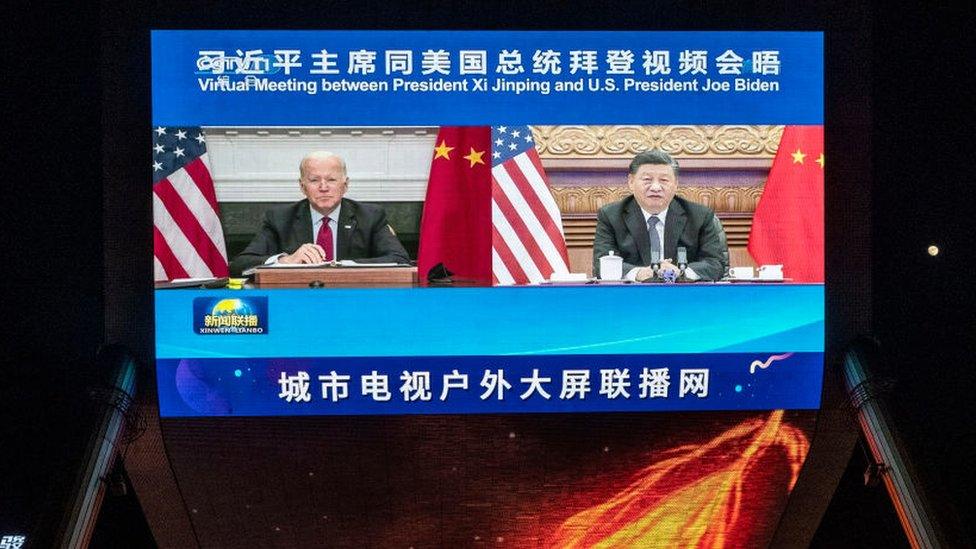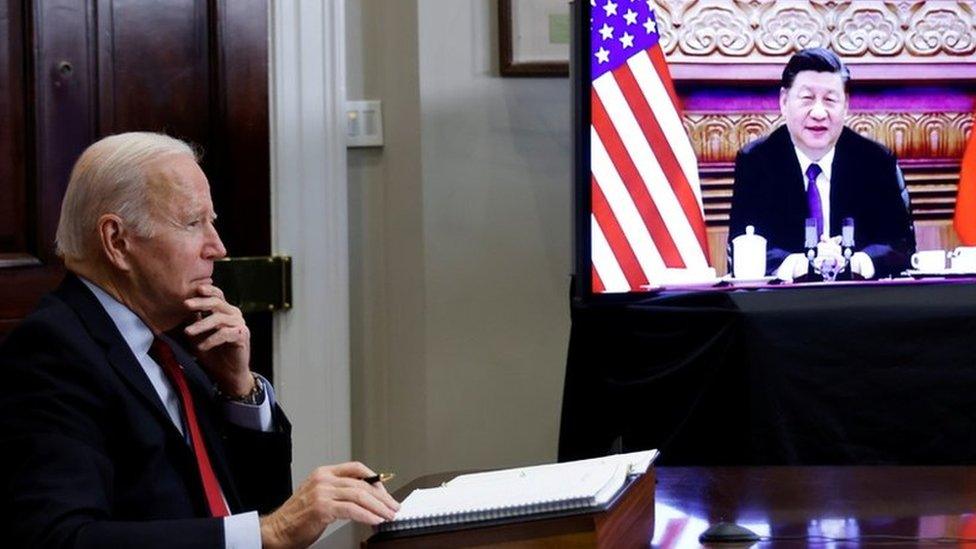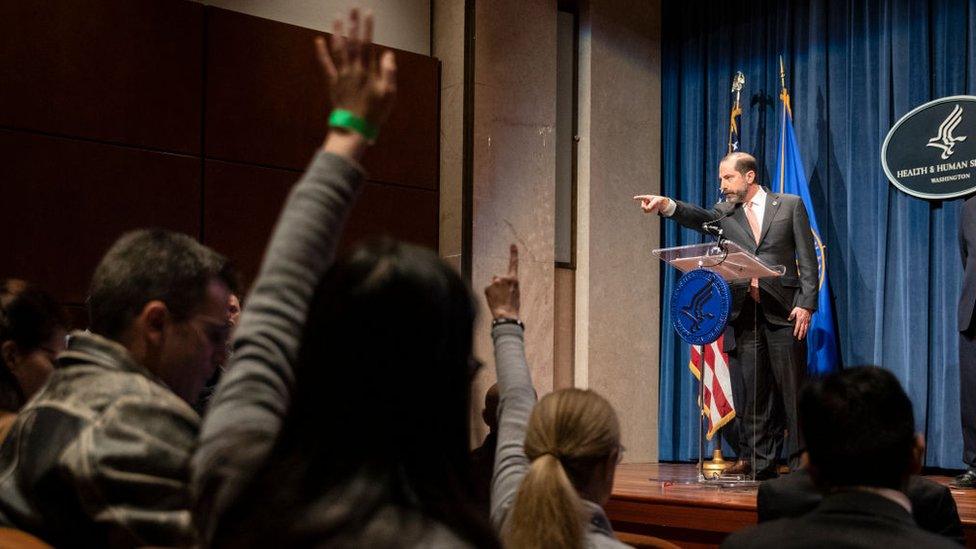China, US agree to ease restrictions on journalists
- Published

US President Joe Biden and Chinese Premier Xi Jinping met in one-on-one talks for only the second time since Mr Biden assumed the presidency in 2020
The US and China have agreed to ease travel and visa restrictions on each others' journalists.
The agreement comes after highly-anticipated talks between Chinese leader Xi Jinping and US President Joe Biden.
The move will allow journalists to enter and depart from both countries more freely.
State media outlet China Daily said the agreement was the result of "more than a year of difficult negotiations".
Under this, both governments will increase the validity of journalist visas from three months to one year, provided they are eligible under all applicable laws and regulations.
Both countries have also pledged to allow journalists to freely depart and return, which they had previously been unable to do.
The US state department spokesperson said they welcomed the moves as "progress" but saw them simply as "initial steps".
They added that they would "continue to work toward expanding access and improving conditions for US and other foreign media".
In February last year, the US decided to classify Chinese state media organisations as "foreign missions", which allowed for tighter control to be exercised over them.
Five outlets including Xinhua news agency and the China Global Television Network were told they would need to seek approval to buy any property, and would be required to submit lists of all employees on staff, in a move China lambasted as "politically motivated oppression".
A month later, China expelled 13 US journalists from major publications like the New York Times, the Washington Post and the Wall Street Journal.
It is not clear if journalists who have been previously expelled will be allowed to return to China under the new agreement.
This week's meeting was seen as a rare opportunity for both countries to stem rising tensions surrounding trade, cyber-security, climate change and the coronavirus pandemic.
These were the most substantial discussions both leaders have had since Mr Biden took office
Related topics
- Published16 November 2021

- Published2 March 2020

- Published18 March 2020
